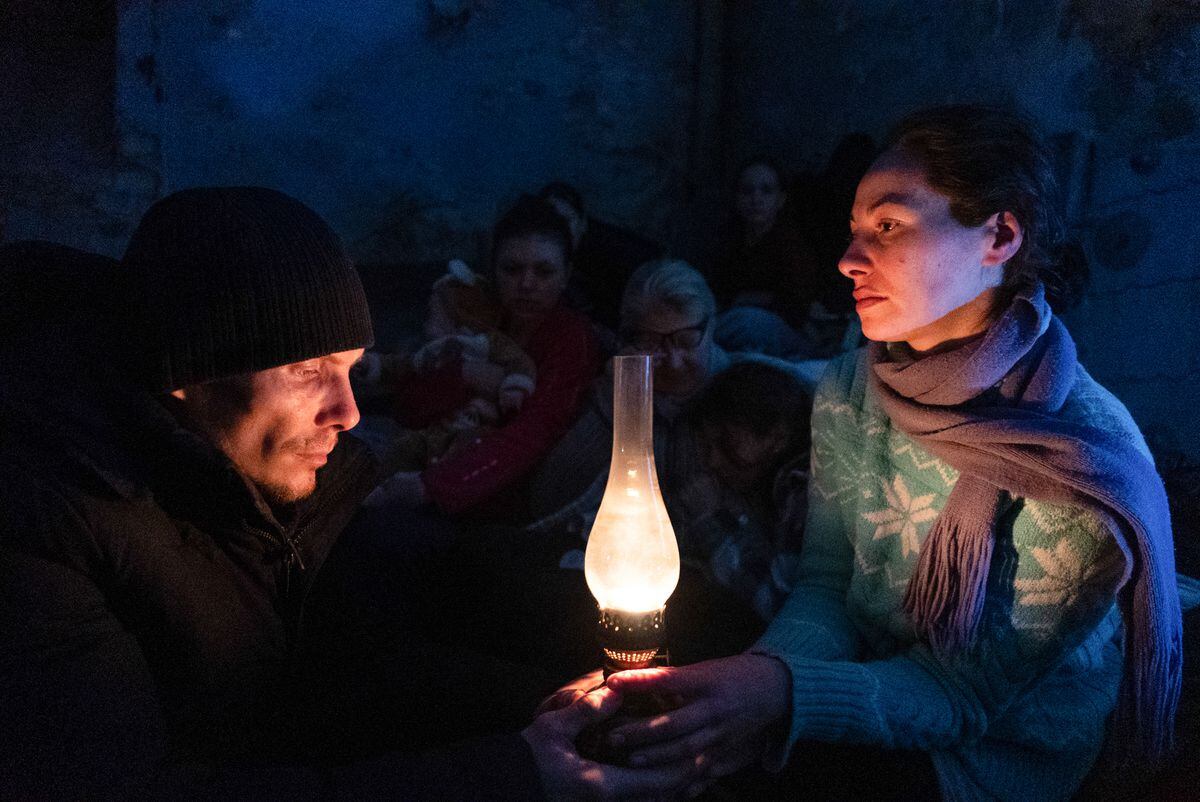It is not a pleasant experience to watch
20 Days in Mariupol,
the documentary that reporter Mstyslav Chernov filmed in the Ukrainian coastal city during the siege by Russia in February and March 2022. This Oscar-nominated film, released on Filmin, is not enjoyable. because everything is such a raw truth that it stirs you up.
Within a few minutes, a girl had already died on camera: four-year-old Evangelina.
Then it will be Kiril, at 18 months.
Here the dead are named.
"This hurts.
But it has to hurt,” confesses the voice-
over
of the award-winning photojournalist from the AP agency, who decided to stay there when the rest of the press left and who for almost three weeks became the only eyes of the West in the face of this barbarity.
And that he narrates what he sees and what he records in a low voice, almost a whisper;
often as if his thoughts were slipping away.
Chernov bravely tours devastated places in Mariupol from the moment the bombing begins until the tanks with the Z take over the entire city, or rather its ruins (except for the Azovstal steelworks, where the fierce fighting would last until May).
He focuses on the civilians, on their fear, on their hopelessness, on their lack of communication.
In the stress of locking oneself in shelters, in the terror when one hears the sound of an airplane, in the macabre lottery of missiles that fall in residential areas.
In the bloodied pregnant woman carried on a stretcher (her name was Irina Kalinina, 32 years old, she died and so did the child she was expecting) after the atrocious bombing of a maternity hospital.
In the guys who throw piles of corpses into mass graves.
In children who cry and cry, out of fear, because they have been orphaned or because they are seeing the rubble of their house.
In a man who drags all his possessions in a cart, because there is nothing left of where he lived.
In the doctors and firefighters, the great heroes of these stories.
Without electricity or water, without internet, without cell phones working other than as flashlights, the neighbors are busy surviving without fully knowing what is happening, with hardly any news from the outside.
We sense your confusion.
And Chernov, who is from Kharkiv (about 400 kilometers north of here), thinks of his daughters when he sees other daughters suffering;
he sees himself in others because he is one of them.
Irina Kalinina, a 32-year-old pregnant woman, is carried on a stretcher after being injured in the bombing of the Mariupol maternity hospital, in an image from the documentary.Mstyslav Chernov
During those 20 days of Russian siege, the journalist took advantage of the rare occasions in which he managed to connect (via satellite or in some corner where there was a trace of Internet) to send 10 or 12 second video fragments to AP.
Those images had a great impact throughout the world.
The end of the documentary shows his complicated exit from the devastated city with the collected material, a treasure that he could well have lost at some
checkpoint
.
Then Moscow clumsily tried to discredit the reporter by saying (its official spokespersons, its television stations and his propagandists) that the scenes we learned about thanks to him had been filmed with actors, that they were a montage.
That didn't convince almost anyone.
This documentary, so honest and so little edited, does convince.
What can decide the war being fought in Europe is patience: Putin has shown that he has it.
If the West hesitates with Ukraine, if Trump, Orbán and company get their way by undermining the allies' support for kyiv, if we stop paying attention because there is another horrible war in Palestine, the world will be even more sinister.
One of the most feared enemies, in Mariupol as in Khan Yunis, is the indifference of those who believe that all this is not for them.
You can follow EL PAÍS Television on
X
or sign up here to receive
our weekly newsletter
.
Subscribe to continue reading
Read without limits
Keep reading
I am already a subscriber
_

